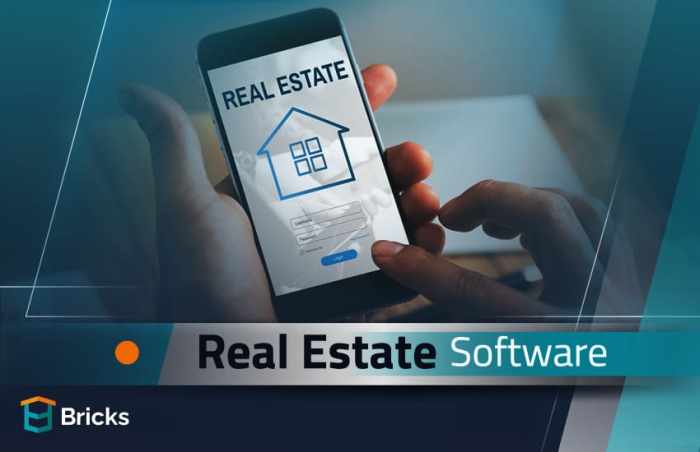Best real estate development software empowers developers to streamline projects, manage finances, and optimize operations. This comprehensive guide explores the key features and benefits of various platforms, ultimately helping you choose the ideal software for your specific needs.
Choosing the right software is crucial for successful real estate development. Factors like project size, budget, and desired functionalities should be considered. This exploration will cover popular platforms and highlight their strengths and weaknesses.
Real estate development is a complex process, requiring meticulous planning, budgeting, and management. Effective software solutions can streamline these tasks, improving efficiency and profitability. This guide explores the best real estate development software available, highlighting key features, benefits, and considerations for choosing the right platform for your needs.
Understanding the Needs of Real Estate Development
Before diving into specific software options, it’s crucial to understand the unique demands of real estate development. Successful development projects rely on accurate estimations, meticulous tracking of budgets, and seamless communication between stakeholders. A robust software solution should address these needs.
Key considerations include:
- Project Management: The ability to track timelines, allocate resources, and manage tasks effectively.
- Financial Management: Accurate budgeting, tracking of expenses, and reporting on project profitability.
- Communication & Collaboration: Facilitating seamless communication among team members, clients, and contractors.
- Document Management: Centralized storage and organization of critical documents, plans, and permits.
- Compliance & Legal: Adherence to local regulations and legal requirements throughout the development process.
Top Real Estate Development Software Options: Best Real Estate Development Software
Several powerful software solutions cater to the needs of real estate developers. Some popular choices include:
1. Project Management Software (e.g., Asana, Trello, Monday.com)
These platforms are not exclusively for real estate, but their adaptability and features like task management, timelines, and communication tools make them valuable for project planning and execution in real estate development. Features like Gantt charts can be particularly useful for visualizing project schedules and dependencies.
2. Construction Management Software (e.g., BuilderTrend, PlanGrid)
Specialized construction management software is designed for the complexities of construction projects, including material tracking, labor management, and progress reporting. Integrating these with project management software can further streamline workflows.
3. Financial Management Software (e.g., Xero, QuickBooks)
These platforms provide crucial financial tools for real estate development, enabling accurate budgeting, expense tracking, and reporting on project profitability. They often integrate with other software to create a unified financial picture.
4. Real Estate Development Specific Software (e.g., Development Capital, e-plan), Best real estate development software
Some specialized platforms are tailored specifically for real estate development, offering comprehensive solutions that integrate project management, financial tracking, and even permit management. These platforms often come with robust features and industry-specific insights.
Key Features to Look For
When evaluating software, consider the following features:
- Customizable Dashboards: The ability to visualize key metrics and project progress.
- Reporting & Analytics: Generating reports on project performance and profitability.
- Mobile Accessibility: Access to critical data and tools on mobile devices.
- Integration Capabilities: The ability to connect with other essential software solutions.
- User-Friendliness: A software that is intuitive and easy to use for all team members.
Choosing the Right Software for Your Needs
Selecting the best software depends on the scale and complexity of your development projects. Smaller projects might benefit from a general-purpose project management platform, while larger developments could require a dedicated real estate development platform.
Frequently Asked Questions (FAQ)
- Q: What is the cost of real estate development software?
A: Software costs vary greatly based on features, user count, and platform complexity. Some platforms offer tiered pricing plans.
- Q: How can I ensure data security with real estate development software?
A: Look for platforms with robust security measures, including data encryption and access controls.
- Q: How long does it take to implement real estate development software?
A: Implementation time depends on the software, the size of your team, and the complexity of your project. Training and data migration are also factors.
Conclusion
Effective real estate development software can significantly improve efficiency, reduce errors, and increase profitability. By carefully evaluating your needs and considering the available options, you can choose the right platform to streamline your development process and drive success. Thorough research and pilot testing are recommended before committing to any software solution.
Call to Action
Ready to explore the best real estate development software for your business? Visit [website link] to learn more and request a demo.
Disclaimer: This article is for informational purposes only and does not constitute financial or professional advice.
In conclusion, selecting the best real estate development software is a significant decision. Careful consideration of your needs and thorough research into available options are paramount. This guide has provided a starting point for your research, empowering you to make an informed choice.
Common Queries
What are the common features of real estate development software?
Most software includes tools for project management, financial tracking, communication, and client relationship management (CRM). Specific features can vary by platform, from advanced analytics dashboards to comprehensive reporting capabilities.
How much does real estate development software typically cost?
Pricing for real estate development software varies significantly depending on the platform’s features, the number of users, and the level of customization required. Some providers offer tiered pricing plans, while others charge based on project value.

Source: iihglobal.com
Is there software specifically designed for small-scale real estate projects?

Source: brickspms.net
Yes, several software solutions cater to smaller projects and budgets. These often have a simpler interface and a more streamlined approach to core functionalities, making them ideal for startups and individual developers.